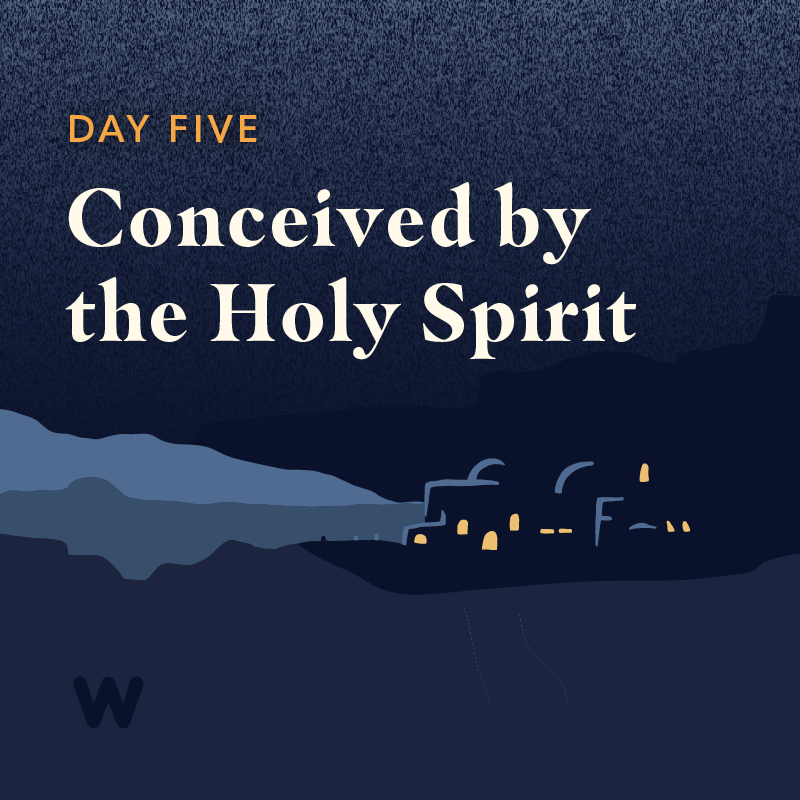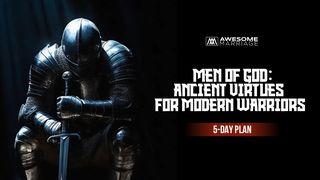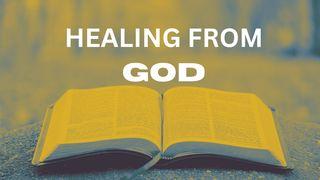Advent: Born to Dwell With Bible Study FellowshipSample


Audio Teaching
Listen to deeper insights and practical applications from days 1-5.
Luke’s Life and Gospel
Luke was a medical doctor by profession. As a writer, his attention to detail made him a conscientious historian. He took great pains to research and confirm facts from authoritative sources. Luke wrote two books contained in the New Testament: the Gospel of Luke and the book of Acts. Luke emphasizes Jesus’ sympathy toward women and other groups despised by the Jews, such as Samaritans. Luke presents Jesus as the Savior of sinners.
Luke, likely a convert of Paul, is the only Gentile among the four Gospel writers. As we know from studying Matthew’s genealogy, Luke’s inclusion as a believer and calling as a Scripture writer testifies to God’s grace. Luke’s life and service display God’s power to reconcile people to Himself and one another through Christ’s coming to save us from sin. (1)
Luke’s Advent Report
While Matthew focuses on Joseph’s experiences surrounding Jesus’ birth, Luke writes about Christ’s Incarnation from Mary’s perspective. Mary was probably in her early to mid-teens, the normal age for betrothal in her culture, when she learned that God had chosen her to bring the Messiah into the world from the angel Gabriel.
Mary hears God’s glorious, incomprehensible news, “The Holy Spirit will come on you, and the power of the Most High will overshadow you. So, the holy one to be born will be called the Son of God” (Luke 1:35). By a sovereign act of God, Mary would conceive by the Holy Spirit—a unique, supernatural event, completely apart from the usual means of human conception.
A child was conceived in Mary’s womb by the power of the Holy Spirit. The reality of the Virgin Birth represents essential truths that cannot be ignored.
- Jesus Christ had to be fully human to die for sinners.
- Jesus Christ had to be fully divine to cover our sins for all time.
Mary chose to make God’s will her priority. Her response to this shocking news demonstrates faithful humility and surrender, “I am the Lord’s servant … May your word to me be fulfilled” (Luke 1:38).
Worthy of Trust
How did Mary entrust the most intimate parts of her life, and every other part, to God? What makes you able to trust someone? Relying on someone else requires personal vulnerability. It is easier to trust your future to someone who has a record of honesty and dependability. But the deepest trust develops when we have personally experienced someone’s faithfulness and integrity.
These thoughts help us understand how we come to place our confidence in God and the Bible. While trusting God requires faith, God’s Word and personal experience validate that God:
- always tells the truth.
- is perfect in everything He is and does.
- keeps His promises.
- demonstrates faithfulness.
- loves you personally.
- knows you intimately.
The eternal God speaks to you today through His Word. The Bible is a supernatural work of God carried out by ordinary people and placed before you for your eternal good. Nothing else in your life can provide such stability and comfort.
Trusting God and the Bible is not a blind leap but a reasonable step. We can trust God’s Word because God is trustworthy. Read every verse and chapter with faith. Study expectantly. Not only will you learn something new, but you will hear God speak. Are you willing to believe God and depend on His Word?
Questions
- What does Gabriel explain to Mary about God—the Father, the Son, and the Holy Spirit, and how does this message help you trust in God?
- Gabriel ends God’s message with a promise, “For no word from God will ever fail.” If you responded to this promise like Mary, saying, “I am the Lord’s servant. May your word to me be fulfilled,” where would your life change, and what would it cost (Matthew 1:37-38)?
- Why can believers trust the Bible’s teaching about Christ’s Incarnation without understanding or explaining everything about how it happened? What else do you trust in daily life that you don’t fully understand?
Reflect
We’ve reached a time in our study to pause and look back at what we’ve discovered during the past five days. Let the two points below guide your reflection and help you grow.
The Bible conveys information and invites transformation. Are you studying Christ’s Incarnation not only to understand but also to grow in love and trust for God? Respond to what you heard from God’s Word this week. Write a prayer to God, or speak it out loud: praise God, confess your sins, thank Him, and ask Him about your doubts, questions, and needs.
Through Christ’s Incarnation, God became a man to enable sinners to live a new life. Consider how many people and Bible stories, and years contribute to His Advent. What part does your life play in Jesus coming to dwell with us? Whose life and destiny could you be part of impacting by sharing this truth with them?
Related verses:
- Jesus reconciles: Rom 5:9-11
Scripture
About this Plan

What does Christmas mean to you? Spend 20 days recounting the Bible's Christmas story from Old Testament passages and the Gospels. Slow down, worship Jesus, and cherish Him by faith. Receive and rejoice in God's greatest gift. Jesus Christ is the Word made flesh to dwell among us. All who believe may be re-born to dwell with God now and forever.
More
Related plans

From Acceptance to Approval: Living a Life That Pleases the Father

Be Ye Holy: The Holy Spirit's Role in Our Lives

Islands, Tides, and the Deep: A Marriage Message From the Sea

Be Still and Know: 7 Days to Recenter Your Heart on God

Alive and on Fire - a Video Devo With Illusionist, Dustin Tavella

Men of God: Ancient Virtues for Modern Warriors

Overcoming Suffering

Unmasking Narcissism

Healing From God
